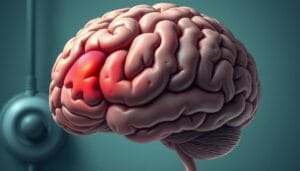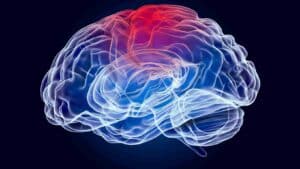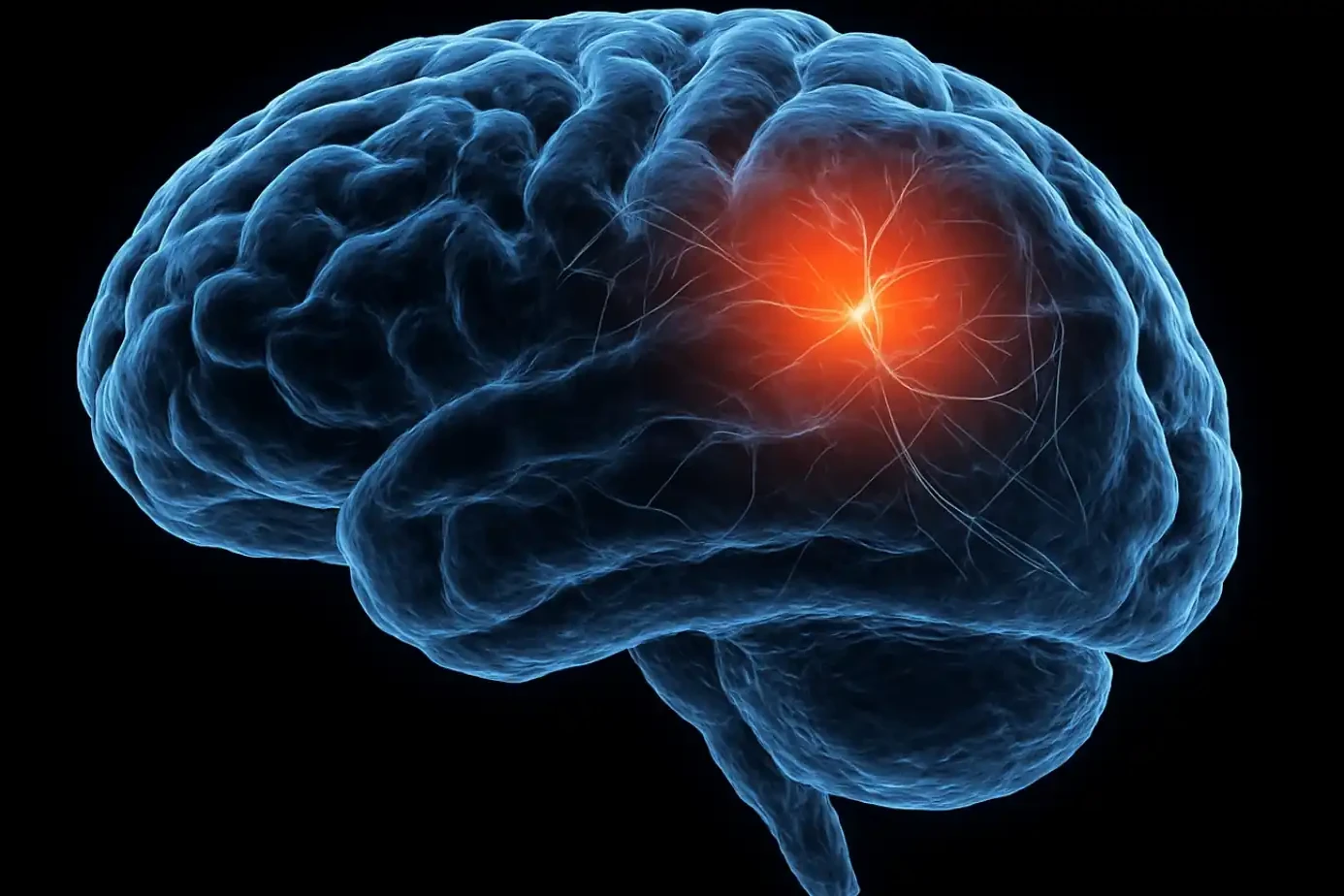Ever feel like life’s constant pressures – the never-ending to-do lists, looming deadlines, and everyday worries – are taking a toll on your health? Maybe you’ve even experienced persistent headaches or foggy thinking and wondered if the stress is somehow causing something more serious, like a brain tumor. It’s a scary thought, and you’re not alone in asking: Can stress cause brain tumors ? This is a question that lingers in the minds of many as they navigate the challenges of modern life. In this article, we’ll cut through the noise and explore what the science actually says about the link between stress and brain tumor development. We’ll delve into the realities of brain tumors, understand how stress impacts your body, and ultimately answer the crucial question: Can Stress Cause Neurological Disorders , or is it a misconception fueled by our anxieties? Let’s uncover the truth together and separate the facts from the fears.
Table of Contents
ToggleUnderstanding Brain Tumors: Types and Causes
Before diving into the stress connection, it’s crucial to understand what brain tumors are and how they typically develop.
Types of Brain Tumors

Brain tumors are abnormal growths of cells within the brain. They are primarily categorized into two types:
- Primary Brain Tumors – These originate in the brain tissue itself. Common types include:
- Gliomas : Tumors that start in glial cells; includes astrocytomas, oligodendrogliomas, and ependymomas.
- Meningiomas : Tumors arising from the meninges (the brain’s protective lining).
- Pituitary Adenomas : Begin in the pituitary gland, affecting hormone regulation.
- Neuromas : Benign tumors of the nerves.
- Secondary Brain Tumors – Also known as metastatic brain tumors, these originate in other organs (like the lungs or breasts) and spread to the brain.
What Causes Brain Tumors?

The exact cause of brain tumors often remains unclear. However, several risk factors may play a role:
- Genetic mutations or inherited conditions (e.g., neurofibromatosis)
- Exposure to ionizing radiation
- Family history of brain tumors
- Environmental exposures to certain chemicals or carcinogens
Importantly, none of these factors directly include stress , which leads us to investigate: Can stress cause brain tumors , or is this just a misconception?
The Physical and Mental Effects of Stress
Stress affects every organ system in the body, including the nervous system. When we experience stress—especially chronic stress—the body releases hormones like cortisol and adrenaline , triggering the “fight or flight” response.
Physical Effects of Long-Term Stress:
- Weakens immune function
- Increases inflammation
- Impairs cellular function
- Disrupts hormonal balance
- Increases risk of chronic diseases
Mental Effects of Chronic Stress:
While these effects are significant, the question still remains— can stress cause brain tumors , or does it simply exacerbate existing symptoms?
Can Stress Cause Brain Tumors? Examining the Scientific Evidence
The short answer is: No, stress does not directly cause brain tumors.
There is currently no scientific evidence proving a direct causal relationship between stress and brain tumor development. However, the relationship is more nuanced.
Indirect Effects of Stress That May Influence Brain Health
Although stress isn’t a direct cause, chronic stress can contribute to biological changes in the brain that potentially create an environment favorable to tumor growth. Here’s how:
- Inflammation : Chronic stress increases the body’s inflammatory response, and inflammation has been linked to tumor formation in various tissues, including the brain.
- Oxidative Stress : Long-term stress can raise levels of reactive oxygen species (ROS) , leading to cellular damage. A 2019 study by Jones et al. found that oxidative stress may contribute to DNA mutations that promote tumor development.
- Suppressed Immunity : Stress weakens the immune system, reducing the body’s ability to detect and destroy abnormal cells early on.
- Hormonal Imbalance : Elevated cortisol over time may influence cellular activity, although more research is needed to confirm a link between hormones and tumor growth.
However, these changes do not equate to a direct cause. Stress may worsen existing conditions or increase the body’s vulnerability, but it does not initiate brain tumor formation.
Read more about how stress affects your brain
Why the Myth Persists
So why do people still ask, can stress cause brain tumors ?
One reason is that the symptoms of chronic stress often overlap with early brain tumor symptoms—such as fatigue, headaches, and mood changes. This can lead to confusion or fear.
Also, stress is a convenient scapegoat in today’s fast-paced world. When symptoms arise, it’s common to attribute them to stress without further investigation, especially when they persist for long periods.
This underscores the importance of medical evaluations for any ongoing or severe neurological symptoms.
Managing Stress to Support Brain Health
Even though stress doesn’t cause brain tumors , managing stress is crucial for maintaining overall brain and body health.
Here are some effective strategies:
- Exercise regularly : Physical activity releases endorphins and reduces stress hormones.
- Sleep well : Prioritize 7–8 hours of sleep to restore brain function.
- Practice mindfulness : Meditation and breathing techniques reduce anxiety and improve focus.
- Eat a brain-healthy diet : Include omega-3 fats, antioxidants, and low-glycemic foods.
- Stay connected : Supportive relationships improve mental health and resilience.
- Seek therapy : Professional help is key for chronic anxiety or depression.
Remember, managing stress not only improves well-being but may also reduce the risk of many diseases , even if it doesn’t directly cause tumors.
Conclusion: Can Stress Cause Brain Tumors?
Based on current research, stress is not a direct cause of brain tumors . While chronic stress can impact brain function, weaken the immune system, and increase inflammation—all of which can contribute to poor health—it does not initiate tumor growth.
That said, stress should still be taken seriously. It’s a significant contributor to many health issues and can exacerbate existing conditions. Adopting healthy lifestyle habits, managing stress effectively, and attending regular medical checkups are key steps in protecting your brain health.
If you’re experiencing persistent neurological symptoms or are concerned about brain tumor risks, don’t delay consulting a neurologist.
FAQ – Can Stress Cause Brain Tumors?
Can stress cause brain tumors?
No, there is no direct scientific evidence that stress causes brain tumors. Stress can affect overall health but does not initiate tumor formation in the brain.
Why does a brain tumor happen?
Brain tumors can develop due to genetic mutations, exposure to radiation, environmental toxins, or inherited medical conditions. In most cases, the exact cause is unknown.
Can brain tumors develop from stress?
Current research does not support the idea that brain tumors are caused by stress. Stress may affect immune function or inflammation but is not a direct cause.
What is the biggest symptom of a brain tumor?
Common symptoms include persistent headaches, nausea, vision problems, memory issues, and seizures. However, symptoms can vary depending on the tumor’s size and location.
What to avoid if you have a brain tumor?
Avoiding smoking, alcohol, processed foods, and unnecessary exposure to radiation can help support treatment and recovery.
Why do I keep thinking I have a brain tumor?
Health anxiety is common, especially with overlapping symptoms. It’s best to consult a healthcare provider for accurate diagnosis and peace of mind.
Can I survive a brain tumor?
Yes, survival depends on the type, size, and location of the tumor. Many benign tumors can be treated effectively, and even some malignant ones can be managed with proper treatment.
What size tumor is considered large?
Tumors larger than 5 cm are typically considered large, but the size alone doesn’t determine severity—location and growth rate matter most.
How to stop worrying about brain tumors?
Educate yourself with facts, manage stress, and consult a neurologist for clarity. Most common symptoms like headaches and fatigue have non-tumor-related causes.
Also Read:
About The Author

Medically reviewed by Dr. Chandril Chugh, MD, DM (Neurology)
Board-Certified Neurologist
Dr. Chandril Chugh is a U.S.-trained, board-certified neurologist with expertise in diagnosing and managing neurological disorders, including migraines, epilepsy, Parkinson’s disease, and movement disorders. His clinical focus includes evidence-based neurological care and patient education.
All content is reviewed for medical accuracy and aligned with current neurological guidelines.




